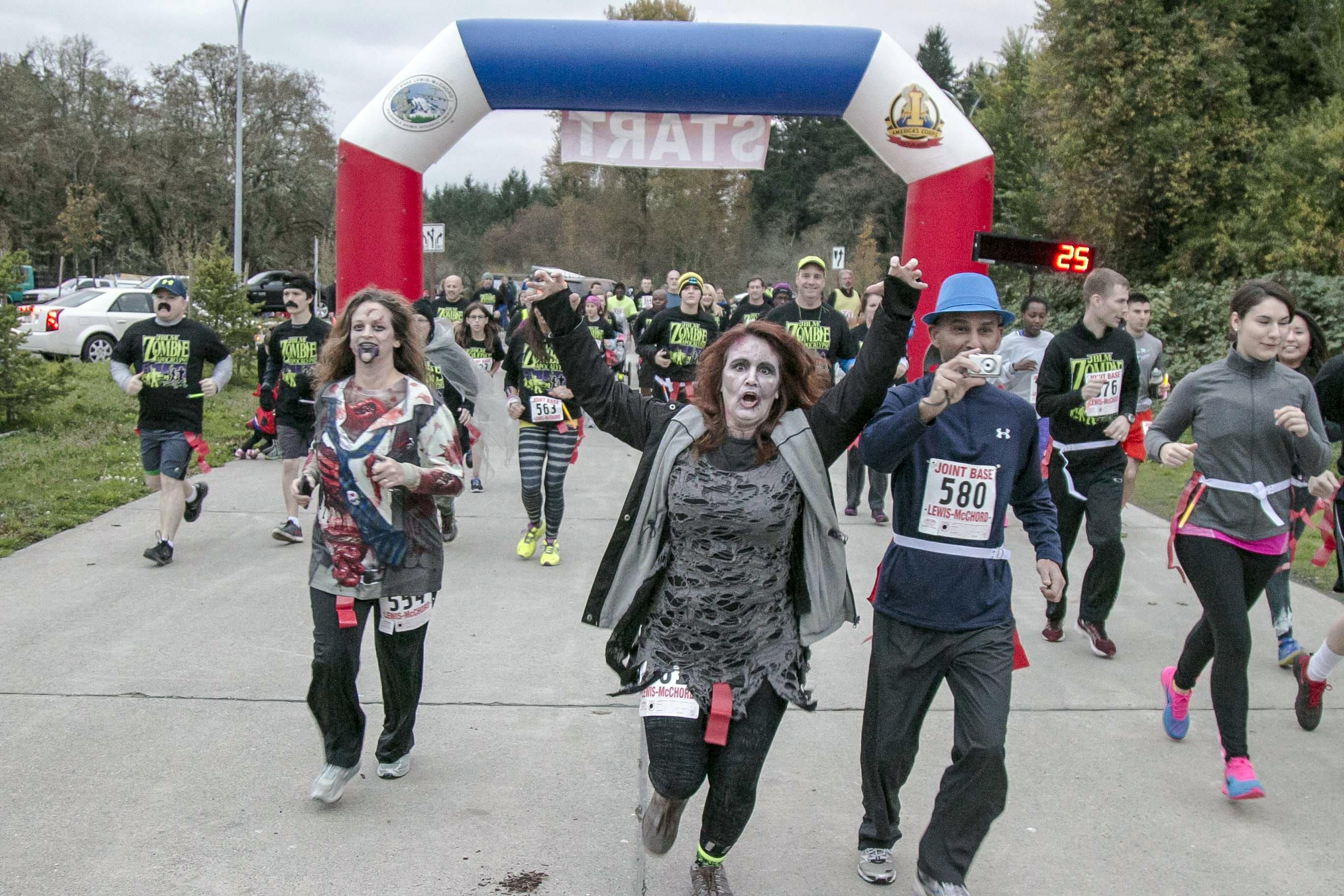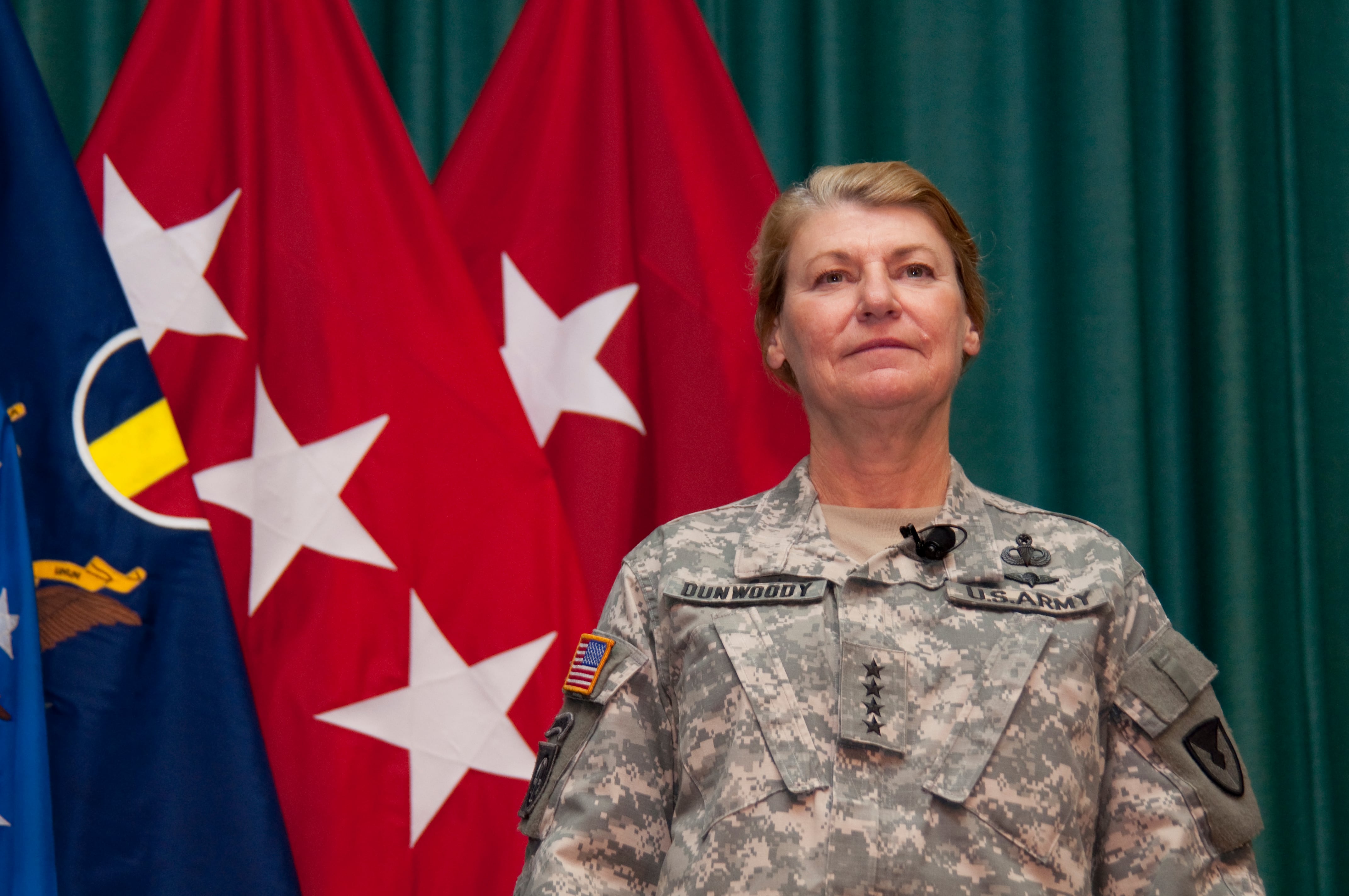Even though she came from a family with four generations of military service, retired Gen. Ann Dunwoody had no plans to put on the uniform.
"I always dreamed that I was going to be a coach and a physical education teacher," she said. "That's what I knew I wanted to be."
Then, as a junior in college, she discovered a program that, in an effort to recruit more women to join the military, paid her $500 a month during her senior year in college, earned her a commission as a second lieutenant and required just a two-year commitment.
"I had four generations of West Pointers in my family, but I'd never considered the Army," she said. "But when they offered this opportunity, I signed up, and two [years] turned into five, turned into 10, turned into forever."
Dunwoody would end up serving almost 38 years as an Army officer and become the first woman to earn the rank of general in the U.S. military.

She spoke with Army Times on May 11 about "A Higher Standard: Leadership Strategies from America's First Female Four-Star General."
Q. Why did you write the book?
A. I didn't plan on writing one, but people kept asking me when I was going to, and I thought about it and realized I really have a wonderful story to share. I didn't want it to be a diary or memoir or autobiography, but I wanted to do one on leadership because that's what my journey was about.
Q. What was it like to write the book?
A. It was more work than I thought. I think it was the hardest thing I've ever done, but I've gotten really positive reaction. People just want to know how you did it, and their perception is that you must have had to claw your way to the top in this man's Army. That wasn't the way at all. It was a wonderful journey. Quite frankly, I cared most that my friends and my family, that I made them proud. That's what mattered most, and after that, if people liked it, that's great, too.
Q. What types of leadership strategies did you include in your book?
A. What I tried to do was select leadership lessons and strategies that worked for me but also had the greatest application from second lieutenant to four-star, and also for businesses or girls and boys in elementary school who are still dreaming. The intent of the book is I hope it gets people to dream big and try to make a difference no matter what. It can be as small as what my first platoon sergeant taught me, who taught 2nd Lt. Ann Dunwoody what "right" looked like. It wasn't how to be the best female platoon leader but the best platoon leader. One of his simple but difficult principles is never walk by a mistake. That briefs well, but it's really hard. In the military, we're a self-policing organization. If all of us are making on-the-spot corrections, we keep ourselves policed in the profession we are. In the military, it's a slippery slope. When you slip on standards, discipline and good order, it can have much more serious consequences.
Q. As the first woman to earn the rank of general, you're a role model for many young women in the military. How did you do it?
A. In the military, I had advocates, then there were detractors. They just don't like you, maybe they think it's a man's Army and women don't belong here. The key is how you deal with people. You don't stoop to name-calling. You be professional, demonstrate you're capable and sometimes you convert people. In the military, people want the best leader on the team. They want the best, and we have a profession that's looking for and rewards that kind of behavior.
Q. What are your thoughts about the ongoing Defense Department effort to integrate women into combat arms jobs?
A. I have strong opinions on this. It takes me back to Airborne School, when they had just started letting women officers go to Airborne School. It wasn't a popular decision. The bottom line for me is if you let others dissuade you from something you want to do, something you believe you can do, something you're passionate about, they win. You have to follow your passion. If I had not been to Airborne School, I couldn't have gone to rigger school. I would never have been in the 82nd Airborne Division. That one door for me was the foundation of many follow-on assignments.
I've watched doors open my entire career. Some are opened for you, some you have to kick down. I believe if someone is qualified, and I mean fully qualified, they should be able to go through that door.
I think it is smart the Army and the military are methodically looking at each one of these branches and career fields to determine what the standard is. They can't lower those standards, once identified, to accommodate women coming into those fields. That would be a failure. We're not a social experiment. We're a war fighting institution, and that's dangerous business.
Michelle Tan is the editor of Army Times and Air Force Times. She has covered the military for Military Times since 2005, and has embedded with U.S. troops in Iraq, Afghanistan, Kuwait, Haiti, Gabon and the Horn of Africa.




